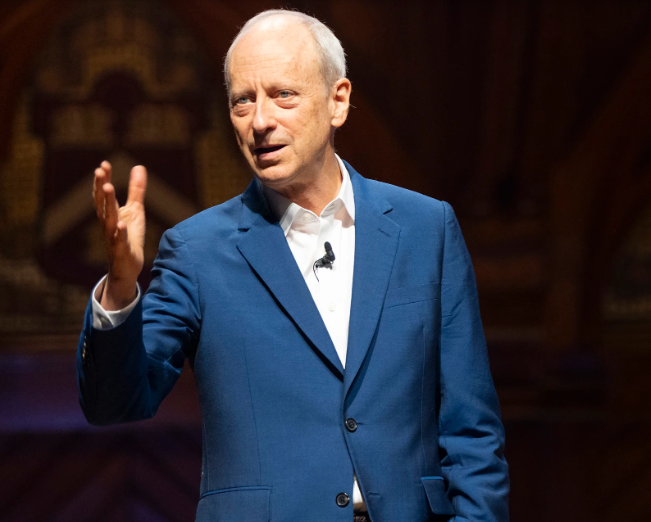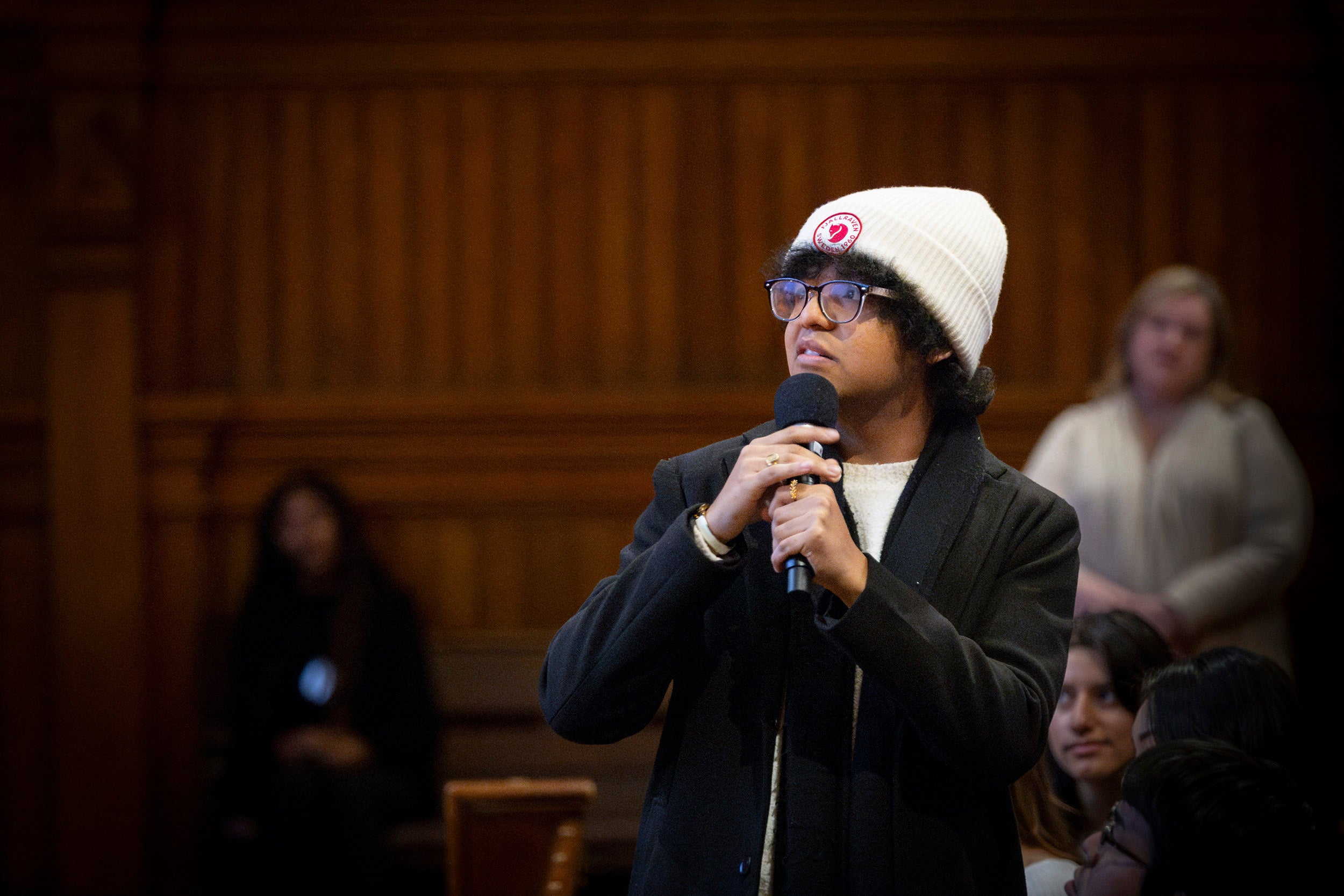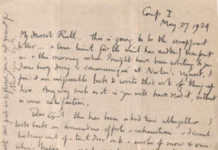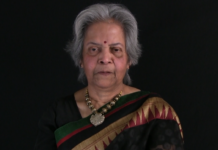
By Christy DeSmith
Harvard Staff Writer/The Harvard Gazette
Forget Botox. Artificial intelligence took 40 years off Harrison Ford, now 81, for the 2023 release “Indiana Jones and the Dial of Destiny.”
The movie star discussed the digital de-aging process in a clip viewed by hundreds of students, faculty, and staff Wednesday evening at Sanders Theatre. “Hard Questions: Ethics in the Age of AI,” sponsored by the Faculty of Arts and Sciences Civil Discourse Initiative, was a marquee event of “Harvard Dialogues,” a series of workshops, conversations, and panels designed to foster more productive dialogue on campus and beyond.
“Does it bother you? Does it make you uneasy?” asked moderator Michael J. Sandel, the Anne T. and Robert M. Bass Professor of Government. “Or do you think it’s fine?” Sandel, whose popular course “Justice” invites open expression of divergent views, is widely viewed as something of an authority on respectful discourse.
Craig McFarland ’25, a double concentrator in neuroscience and philosophy, was the first to stand and voice his opinions.
“It’s concerning to me because it reinforces the status quo of encouraging youth and having youth as the beauty standard,” McFarland argued. “It kind of makes aging seem like something wrong.”

Sandel took a moment to solicit pro-technology opinions, but quickly circled back to McFarland. What if a filmmaker wanted to make a young actor look old? Sandel asked. “Would be OK to use digital aging to add years? It’s just not OK to subtract years?”
When thinking about the ethics of AI, Sandel told the crowd, there are four familiar worries: One has to do with computers stealing human jobs, another with computers amplifying human biases. The third common objection concerns privacy and the fourth, democratic decay.
“This evening I’d like to explore with you a further worry,” he said. “And it really takes the form of a question. Will technology change what it means to be human?”
For 75 minutes, Sandel’s knack for posing provocative questions that elicit thought-provoking responses was on full display. In another video clip, “Black Panther” star Michael B. Jordan told Sandel he was uncomfortable with the idea of resurrecting favorite film actors — say, the mid-century master Sidney Poitier — with the help of AI technology. “It’s not the man’s free will,” Jordan complained.
But what if Poitier had given his consent? Sandel wondered.
Jordan indicated he would still find it troubling.
“OK, so there must be another reason beyond his consent,” Sandel pressed. “What would that reason be?”
Jordan narrowed his eyes, searching himself for the precise answer. “It’s just a feeling of authenticity that’s not there,” he finally said.
Danoff Dean of Harvard College Rakesh Khurana had opened the event with news that “Justice” would be offered in the fall after a hiatus (though the course has lived on via a free pre-recorded version). Khurana also praised Sandel for decades of work inviting Harvard students to practice meaningful engagement on critical issues. “He encourages us to see ourselves … as part of a community of interpreters — of people in conversation with each other,” Khurana said from the stage.
After the event, a group of fellows with the Edmond & Lily Safra Center carried that spirit to the campus dining halls. At Annenberg, the Values Engagement Fellows paired a group of Harvard Kennedy School students with a few first-years. Together, they grappled with Sandel’s final conversation-starter of the evening: Who would you trust more to find your future life partner, a dating app or your mother?
“If you’re trusting an AI matchmaker, there’s an implicit belief that love is rational,” offered Emmanuel Edwards ’27, who threw his full confidence behind mom. Placed on a tray beside his dinner was Sandel’s “The Tyranny of Merit” (2020).
“What if there were data on millions of couples who worked out well?” said Chuchu Zhang ’27, who described herself as “not one to take hard stances.” A minute later she was riffing on the possibility of an AI matchmaker that can aggregate enormous amounts of data and know how she responds in all manner of situations.
That prompted a dissent from Kennedy School student David Riveros García, who questioned the wisdom of granting that much access to one’s inner life. “You’re almost giving it omniscience — an omnipresence,” he said with a smile. He likened that kind of power to God.
(Reprinted with permission from the Harvard Gazette.)













